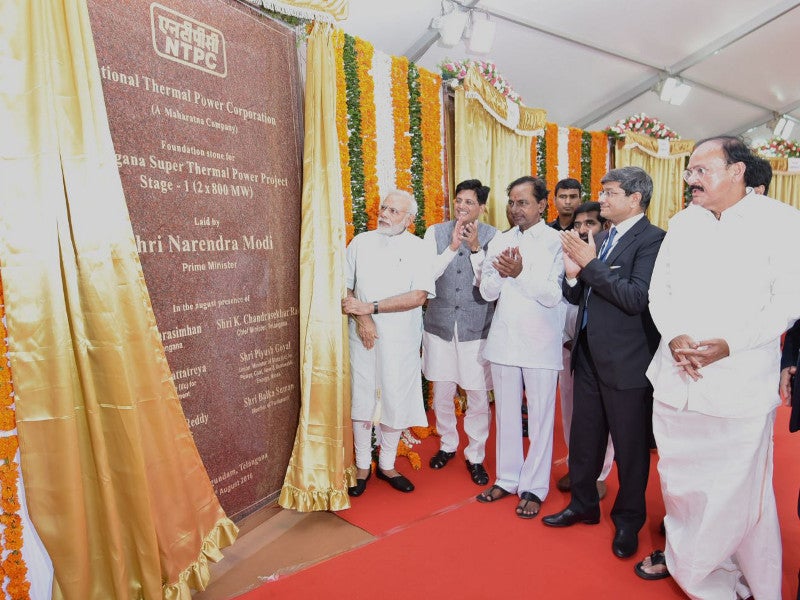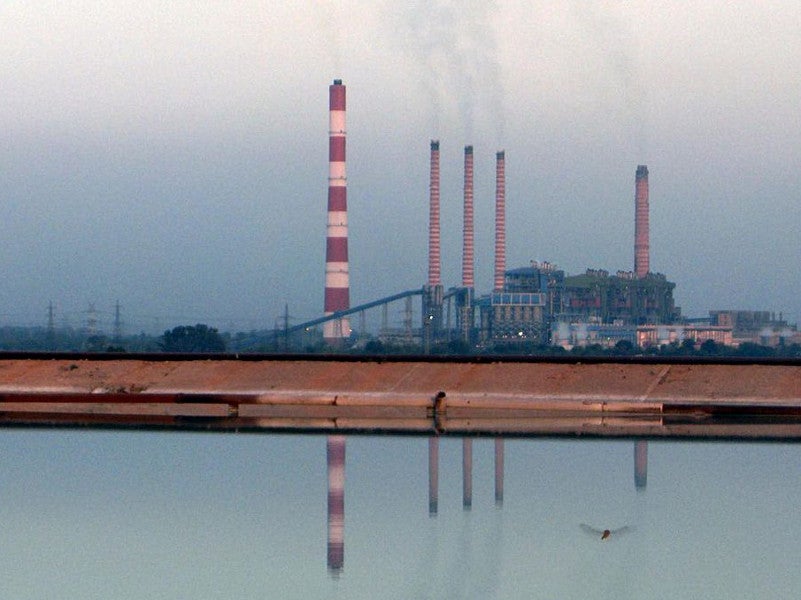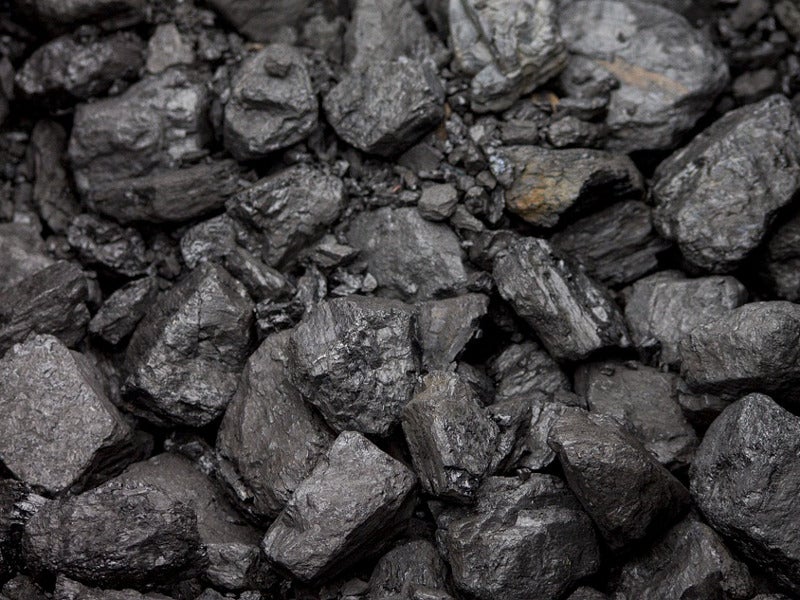The Telangana super-thermal power project (STPP) is a 4GW thermal power project located near the village of Ramagundam, Karimnagar district, Telangana.
The project is being developed in two phases, with the under-construction first phase comprising 1.6GW (2x800MW) coal-based power plant with super critical technology. The second phase will add 2.4GW to the project by including three 800MW units.
National Thermal Power Corporation (NTPC) is developing the project with an investment of Rs118.11bn (£1.35bn).
Final environment impact assessment report of the project was published in June 2015, while the foundation stone was laid by the Prime Minister of India in August 2016. The first phase of the project is expected to be completed in the third quarter of 2021.
The State of Telangana will offtake 85% of the power produced by the plant, under a proposal approved by the Union Cabinet in February 2019.
Telangana super-thermal power project location and make-up
The first phase of the Telangana super thermal power project is being constructed in 235 acres of the MGR unloading bulb area within the existing Ramagundam STPP site.
The site can be accessed via the SH-1 Hyderabad-Mancherial Road, which is popularly known as Rajiv Rahadari.
The main components of the power plant include a once-through, direct pulverised coal-fired steam generator, turbine generator, coal handling system including dust extraction and suppression system, and closed-cycle cooling system with cooling towers. It will also feature electrostatic precipitators, water and effluent treatment system, and fire protection systems.
Power generation
The phase one will implement supercritical technology. Coal from the handling plant will be delivered to the coal bunkers and then fed to the pulverising mills and grinded into fine powder.
The powdered coal will be mixed with air and blown into the boiler where it is combusted to release thermal energy. The boiler walls are equipped with boiler tubes containing high-quality demineralised water.
Heat generated by the combustion process will convert the demineralised water into steam with high temperature and high pressure.
Nozzles on the turbine blades discharge the steam enabling the turbine to rotate, which in turn will rotate the generator coupled to the end of the turbine. The turbine rotation will generate electricity, which will be conveyed to the step-up transformer for increasing its voltage. The power will then be transmitted to the grid via a switch yard.
Ash generated by the project shall be utilised by the cement industries and brick manufacturing units, and for road construction.
Fuel supply to Telangana STPP
Singareni Collieries Company (SCCL), a state-owned coal mining company, has agreed to supply two million tons per annum (Mtpa) of coal for the power plant.
The coal is expected to be transported through the MGR/Indian Railways rakes in BOX-N wagons. It will be transported via the existing railway siding for Ramagundam STPP, which connects to the Ramagundam train station, which is located 5 km from the plant.
Infrastructure for Telangana super-thermal power project phase one
The project will comprise two-lane, 5m-wide approach and main arterial roads. Power supply during the construction will be from the 400kV NTPC Ramagundam switchyard. It will delivered through a feeder from the existing 11kV Colony Switchgear and from a new feeder.
Water supply is proposed to be made from Yellampally Barrage, which is located approximately 14km from the proposed plant. Drinking water will be supplied through water tankers and community taps.
Contractors involved
GE Power India is the supplier of the flue gas desulphurisation (FGD) system for the first phase of the Telangana super-thermal power project.
Bharat Heavy Electricals (BHEL) was awarded the contract in February 2016 to supply the mill reject system as part of steam generators island package. The contractual scope includes the design, engineering, manufacture, supply, installation, testing, and commissioning of the island package.





